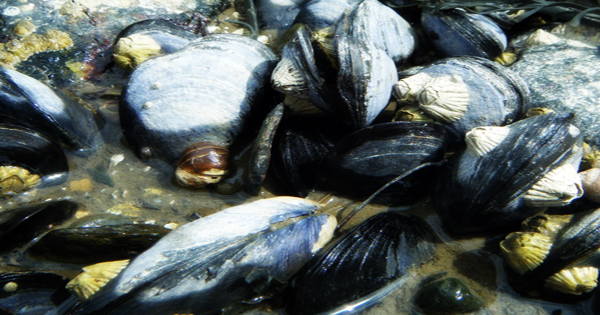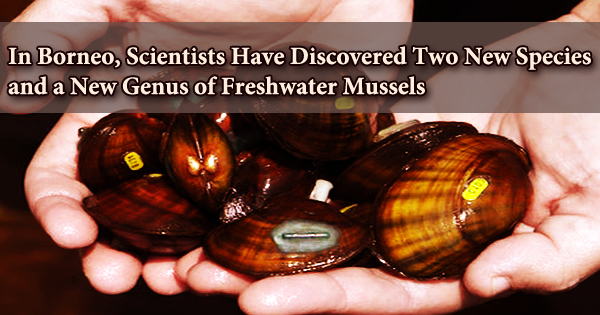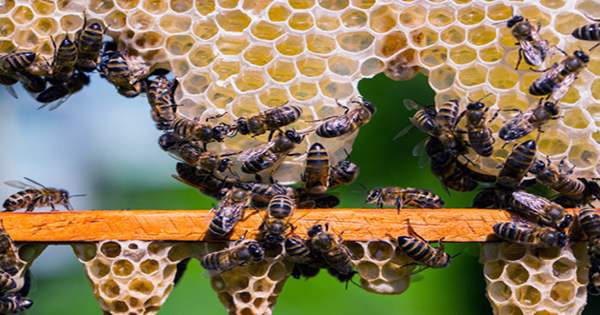For the first time in over 100 years, researchers headed by the University of Nottingham have found two new species and a new genus of freshwater mussel in Borneo. Dr. Alexandra Zieritz of the university’s School of Geography made the discovery in tiny streams in the Gomantong Forest Reserve in Sabah and near the town of Kuala Mendalam in Sarawak, with partners from Malaysia, Indonesia, Brunei, the United States, and Portugal.
Both species are unique to Borneo, according to the researchers, and are “very distinct from anything we have known to far,” indicating that they belong to a new freshwater mussel genus. Khairuloconcha sahanae was named after the late Dr. Sahana Harun, while Khairuloconcha lunbawangorum was named after the indigenous Lun Bawang tribe of Borneo.
Their finding comes 94 years since the last freshwater mussel from Borneo (Ctenodesma scheibeneri) was reported (in 1927), while the other 17 species known from the island were documented considerably earlier (between 1840 and 1903). Borneo has an unusually high number of endemic freshwater mussels, with 15 of the 20 officially recognized species found only on the island.

The team’s four-year study’s findings were published in the journal Aquatic Conservation: Habitat degradation is threatening a new genus and two endangered freshwater mussel (Bivalvia: Unionidae) species indigenous to Borneo. In 2016, the team was also responsible for the generation of the first-ever DNA sequencing data of Bornean freshwater mussels.
Dr Alexandra Zieritz, Anne McLaren Fellow at the University of Nottingham and lead author of the study, said: “The new species of freshwater mussels we have discovered are very rare, known only from a single site each (one in Sarawak, one in Sabah), and highly threatened by ongoing habitat destruction.”
“One of these species is particularly vulnerable to extinction since its only known habitat has already been converted to an industrial oil palm plantation. We are in the process of preparing the paperwork with the Universiti of Malaysia Sarawak to get this area protected. This would not only help the unique biodiversity in this area but also the indigenous Lun Bawang tribe after which we named that species, ‘Khairuloconcha lunbawangorum’.”
The authors note that the declines of existing populations of freshwater mussels on Borneo have likely been caused by industrial-scale deforestation and land-use change from primary rainforest to agricultural monocultures (predominantly oil palm plantations).
These practices, according to experts, cause high levels of soil erosion, significantly increased sediment yield (amount of sediment run-off), and organic and inorganic pollution (via agricultural run-off) of rivers, all of which have a negative impact on freshwater mussels, either directly by degrading habitat quality or indirectly by reducing host fish populations that they need to complete their life cycles. Pollution from residential and industrial waste, hydrological changes, mining, climate change, and invasive species are all possible causes of freshwater mussel population reductions in Borneo.
Why are freshwater mussels important?
Freshwater mussels are an important element of many freshwater ecosystems across the world. They dwell at the bottom of freshwater environments such as rivers, streams, lakes, and ponds, where they filter algae, bacteria, and other organisms from the water, functioning as biological filters and contributing significantly to nutrient cycling. At a rate of around 1 liter of water per hour per mussel, they may remove algae, bacteria, and other debris.
Much of this material is then carried to the benthos (organisms that live at the bottom of the environment), where it provides food for insects and other invertebrates, which thrive in mussel beds due to their quantity and diversity. By creating a three-dimensional habitat, they have also been proven to increase the richness of insect larvae and other tiny creatures.
People eat them directly and utilize their pearls and shells for decorative purposes, especially in Asia. Other ecosystem services they perform across the world include biomonitoring (water quality monitoring) and bioremediation (e.g. wastewater treatment).
Dr Zieritz said: “The discovery means that there is a lot that we do not yet know about Freshwater mussel diversity in Borneo. Despite our best efforts over the last five years, we have only studied a tiny section of the island thus far, focusing on Malaysian Borneo and Brunei. For Kalimantan, the Indonesian section of Borneo that accounts up 73 percent of the island, there are little current data on freshwater mussels.
“Despite these constraints, we already found two new species, suggesting that there may be more species waiting to be discovered and which likely require protection.”
“However, given the high rate of habitat loss, we must move quickly to locate the surviving populations of native and indigenous Bornean mussels so that they may be protected. It’s also worth mentioning that the scenario is likely similar for other obscure freshwater species like beetles, snails, and mayflies, for which we currently have even less information.”
The collaborators on the study were: Leonardo Jainih of Universiti Malaysia Sabah; John Pfeiffer of National Museum of Natural History; Khairul Adha A. Rahim of Universiti Malaysia Sarawak; Hari Prayogo of Tanjungpura University; Muhammad Sofwan Anwari of Tanjungpura University; Arman Hadi Fikri of Universiti Malaysia Sabah; Farah Diba of Tanjungpura University; Hussein Taha of Universiti Brunei Darussalam; Zohrah Sulaiman of Universiti Teknologi Brunei; Elsa Froufe of CIMAR/CIIMAR-UP Centre of Marine and Environmental Research, AEE; Manuel Lopes-Lima of CIBIO/InBIO Research Center in Biodiversity and Genetic Resources, University of Porto.
















